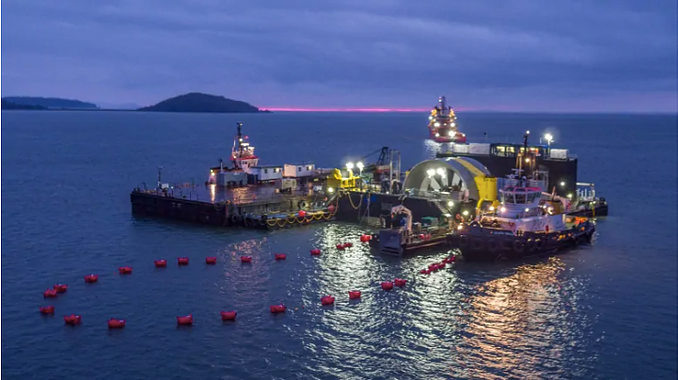Assessment and Mitigation of Environmental Impacts from the Bay of Fundy Tidal Energy Development, Atlantic Canada
Mengyao Li, MLWS 2021
Tidal energy has the potential to substantially advance future sustainable development. Tidal energy is a renewable energy resource that helps meet the continuously increasing global energy demand while producing very little greenhouse gas emissions in comparison to other traditional energy sources (fossil fuels, coal, oil, etc.). In-stream tidal turbines placed under the ocean surface extract energy from the rise and fall of the tides. Tidal energy has attracted considerable attention, particularly in areas where tidal ranges are particularly high. The Bay of Fundy, Nova Scotia has the world's highest tidal range, making it an ideal location to develop tidal energy projects. Several tidal energy development projects are authorized for development at the Bay of Fundy.
The report provides a comprehensive review on the potential environmental impacts of tidal energy extraction at the Bay of Fundy while considering further climate change and sea-level rise, and provides a recommendation framework to mitigate these adverse effects. This report also provides a recommendation framework relevant to the Bay of Fundy tidal energy extraction, mainly including energy appliances enhancement, monitoring machinery establishment and regulatory agencies creation. Optimizing the blade shape, avoiding the application of Cu-contains coating and applying seabird-friendly lights to mitigate the negative impacts. Building up rescue stations, establishing fully functional protected areas, and conducting soil remediation to restore the disturbed ecosystem.
